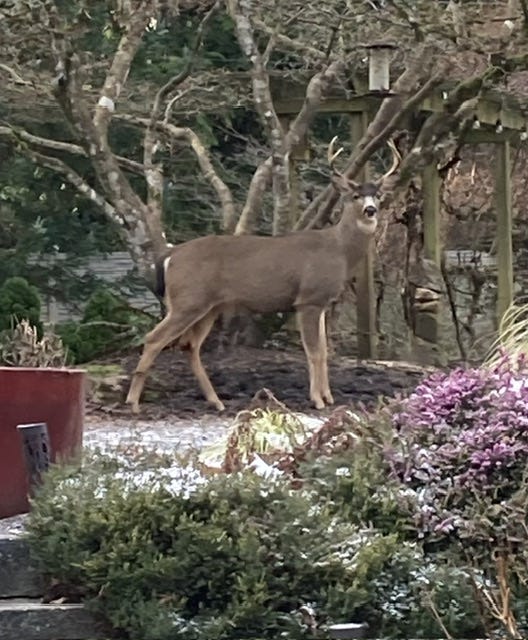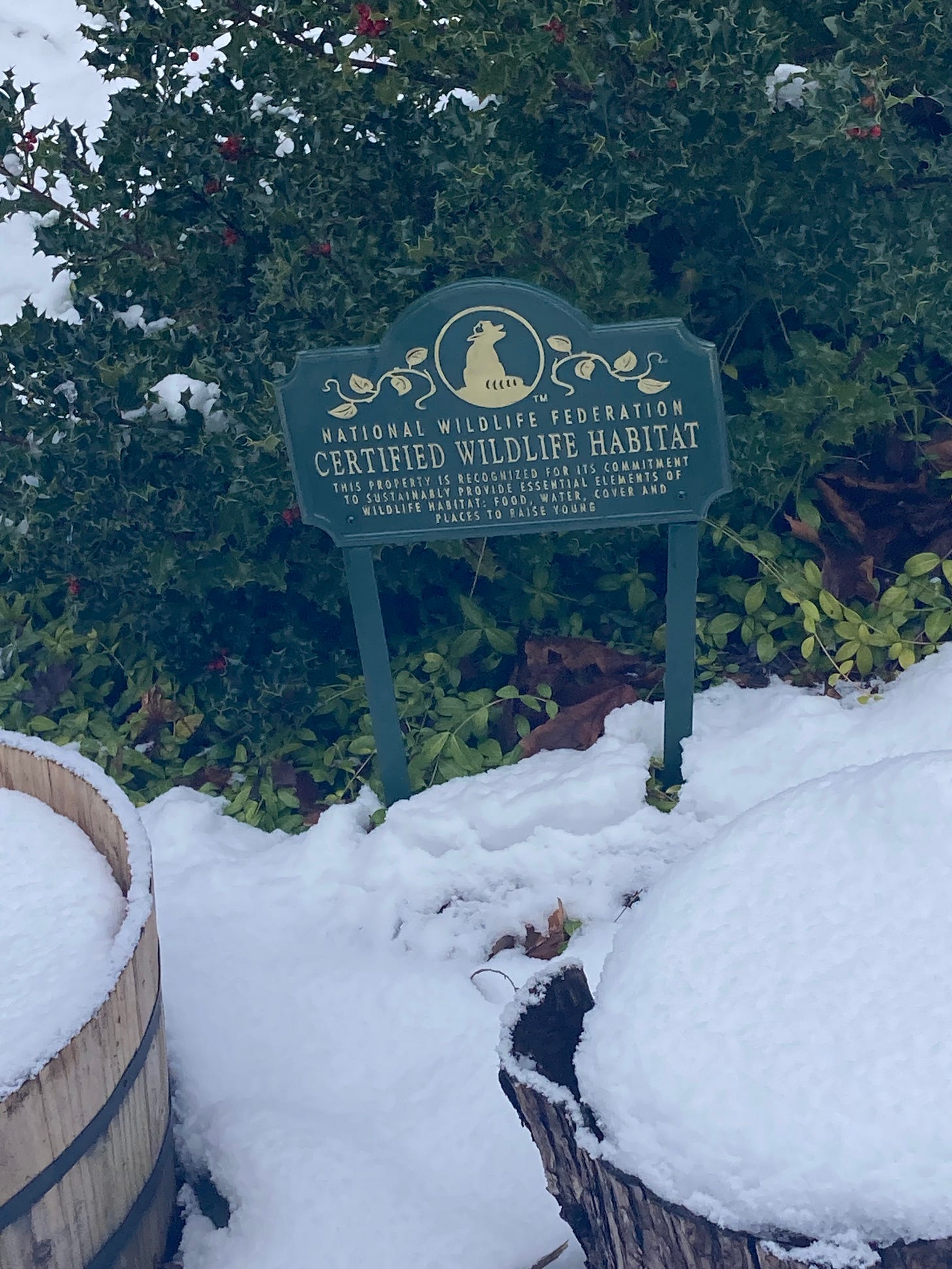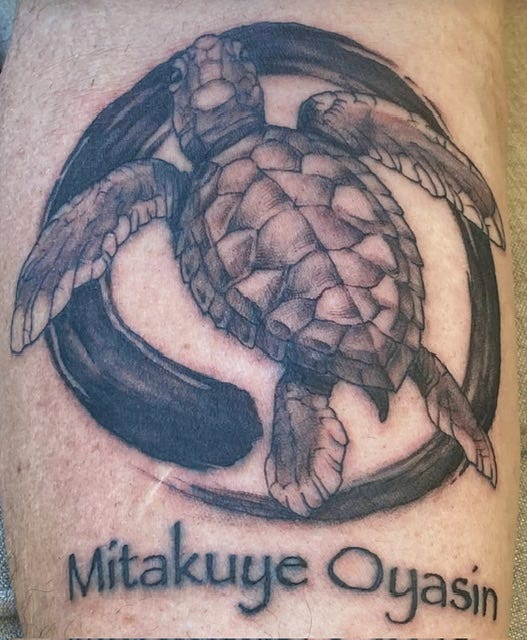The etymology of the phrase is vague:
The origin of this idiom dates back to the 16th century when it was used to refer to the period most characterized by a lack of signs of life or activity.
~ leverageedu.com
Current usage indicates the phrase…:
“refers to the coldest, most intense part of the winter season, where "dead" in this context signifies a state of inactivity or dormancy, not literal death; the phrase essentially means the "heart" or "peak" of winter, with the usage of "dead" dating back centuries to describe the most extreme point of something like darkness ("dead of night") or cold ("dead of winter")
~ Cambridge Dictionary
We’re in the “dead” of winter, except we’re not.
Really.
This Sunday Short is meant to be an homage to the life that surrounds us still, even in the midst of the dead of winter. My wife and I have gone through steps to designate our home and property, property we are only borrowing for a period of time before some other humans come at some future point to lay claim to it, as an official Certified Wildlife Habitat and sanctuary. We take this “stewardship of place” very seriously knowing this designation isn’t solely for the times of the year when the sun is shining, the air temps are warm, and “the alive of summer” is in full swing. No. Committing to this designation acknowledges we are a part of something greater—an expanse of other Souls and Beings with whom we share this common space. Committing our place as a refuge and yearlong habitat means as well we approach our space, our place in it, and all our friends who come to inhabit this habitat along side us, with reverence.
“[Other animals] are not brethren, they are not underlings; they are other nations caught with ourselves in the net of life and time.”
~ Henry Barron
The Lakota have a phrase that is apropos and one that has become a personal mantra for me: Mitakuye Oyasin. It means “All my Relations.” This is how Native cultures lived—honoring all creations as kin. Even when they had to take the life of another animal, they did so as a sacred rite and engaged in practices that honored the life of the animal while insuring other practices were in place that sustained the species well into the future (“to the seventh generation” and beyond).
Even in the dead of winter, we provide for our relations, the multitude of nations that we exist among, with food, shelter, water, and places for future young to be birthed. Because of our efforts, we continue to be graced with visits by numerous birds (jays, woodpeckers, robins, nuthatches, chickadees, owls, hummingbirds, finches, and thrushes, among others); deer, squirrels, raccoons, coyote, and more that we know have visited but who do not make their presence readily known. Things are not dead here in the dead of winter.
When one understands we are not one nation, but are a part of many nations in this broader, yet appropriate, understanding of our place in the wholeness of nature, that we are but one small part in the vast expanse of all relations, one comes to appreciate there is no dead in the dead of winter. There is still, life. And when cared for, with gratitude and reverence, life, even in the dead of winter, can thrive.
The sad thing to realize: remove the human element in nature, and all the rest of the relations thrive even more. Humans have proven over and over again to not be good neighbors; and we are, as a species, even worst friends with the members of these other nations.
So we do what we can, as stewards of our place, to be better neighbors and friends.
While knowing there is still more that can be done.
Even in this dead of winter.



Always and Ubuntu,
~ k








When I learned about all the underground activity going on during winter, preparing for Spring, I gained a new understanding of and appreciation for the intelligence of trees, plants and gardens.
I had never heard of wildlife habitat certification. What a beautiful thing! And thank you for this homage to the spark of life in winter. In truth, what we consider the barren month of February is actually, I imagine, quite a busy one for the plants and animals and birds who will spring to life seemingly from nowhere in only a few short weeks. Nature is always growing. Always renewing. That’s part of her magic.